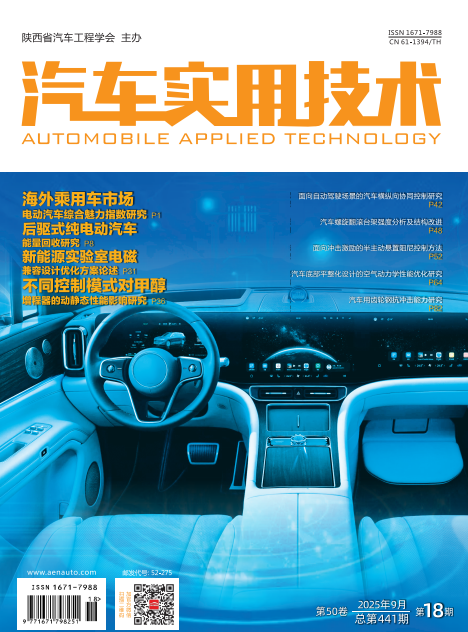|
|
Study on the Impact of Different Control Modes on Dynamic and Static
Performance of Methanol-fueled Range Extenders
REN Yafeng1,2,3
, LUO Yusheng1,2,3*
, PAN Yige2
2025, 50(18):
36-41.
DOI: 10.16638/j.cnki.1671-7988.2025.018.007
This study proposes a dual closed-loop control system based on a 7 L methanol range
extender, establishing two operational modes: torque control (TC) mode with engine torque�generator speed regulation, and speed control (SC) mode with engine speed-generator torque comprehensive characteristics from four dimensions: steady-state speed characteristics, transient
speed response, steady-state power output characteristics, and external characteristic curves. The
experimental results show that in terms of steady-state control accuracy, the TC mode exhibits
superior control precision, with its speed fluctuation rate reduced by up to 46.7% compared to the SC
mode. Under transient load conditions, the speed deviation of the TC mode is reduced by 21% to 71%
compared to the SC mode, and the adjustment time is shortened by more than 60%. On the other hand,
the SC mode demonstrates better stability during continuous power output, with its power fluctuation
rate reduced by up to 86.1% compared to the TC mode. Additionally, the comparison of external
characteristic curves shows that the maximum power output of the SC mode at various speed points is
significantly lower than that of the TC mode, with the power output difference exceeding 30% across
the entire speed range.
regulation. Through a self-developed range extender test bench platform, the research systematically
investigates the performance impacts of different control modes on the range extender's
References |
Related Articles |
Metrics
|

